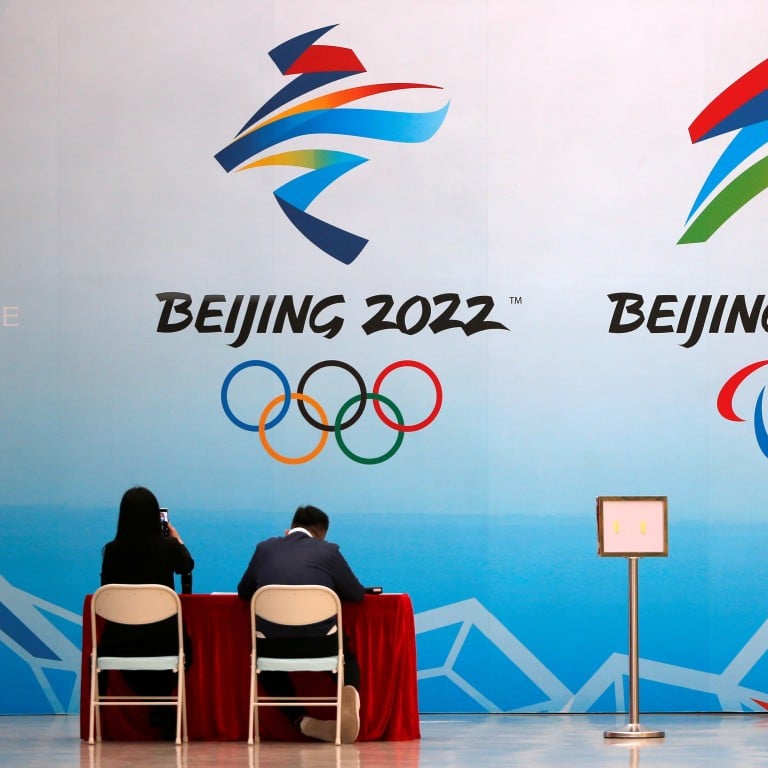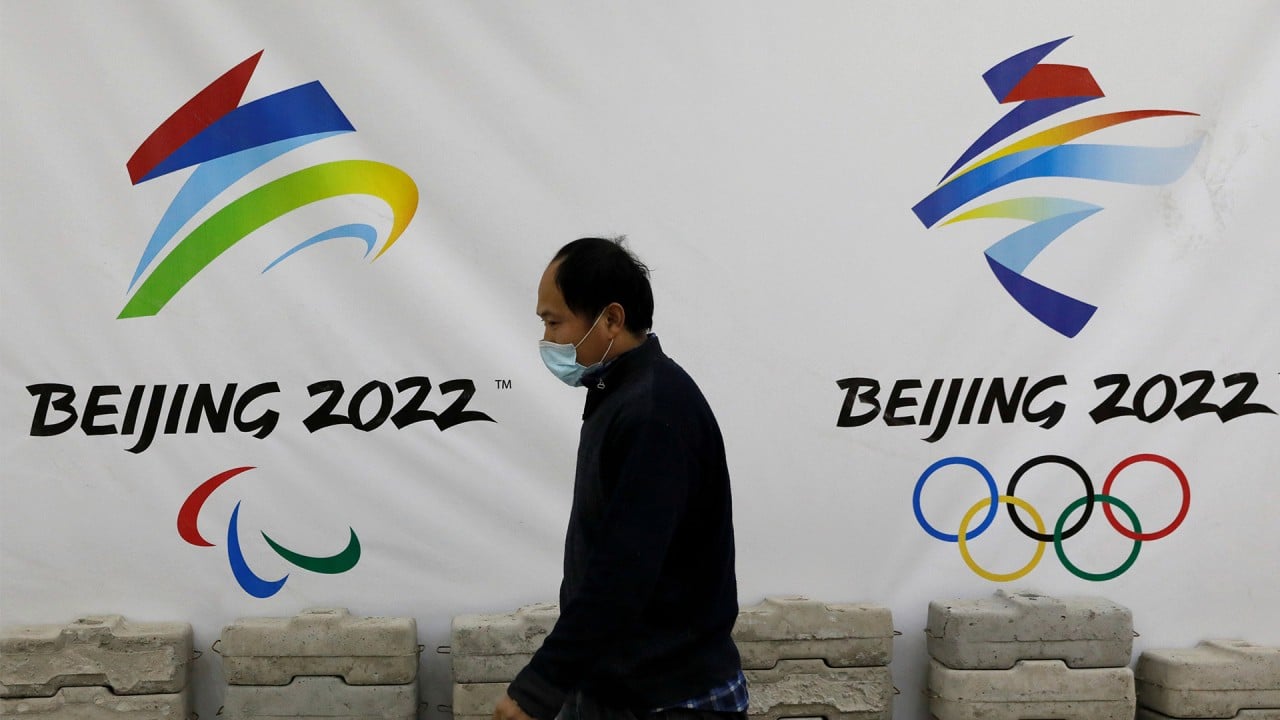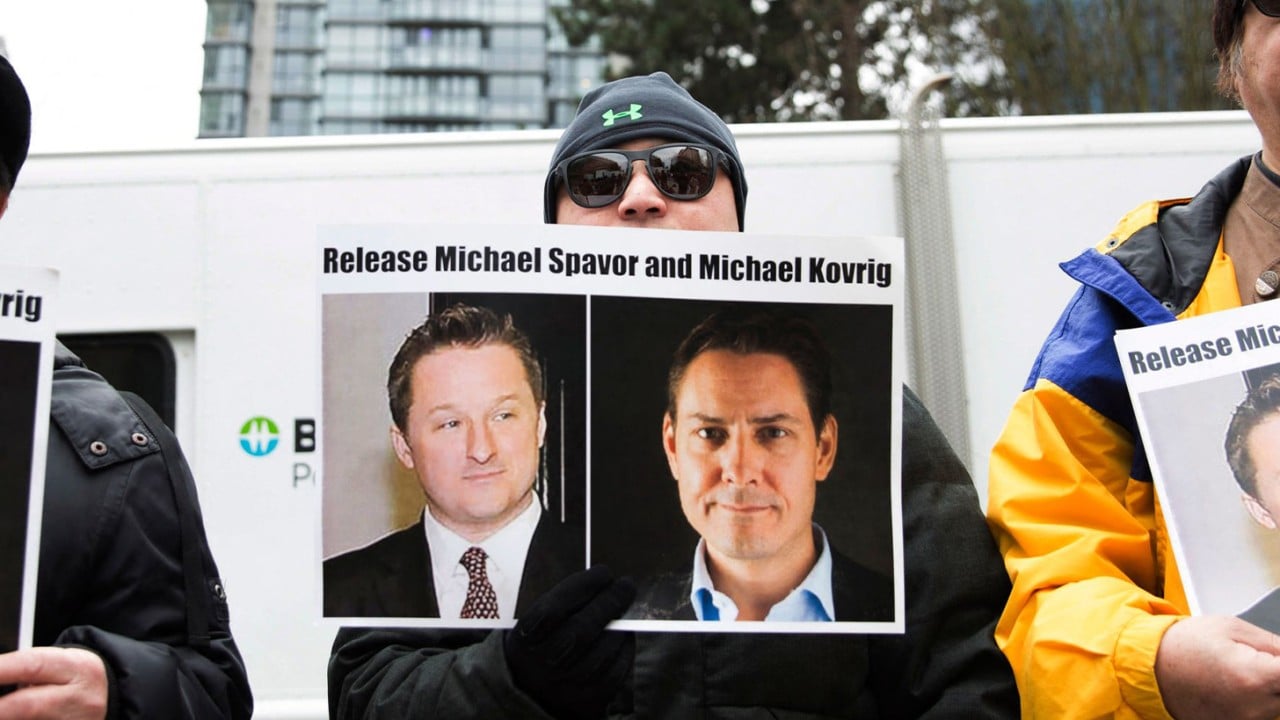
More than half of Canadians support Beijing Olympics boycott, survey shows
- 54 per cent of Canadians support boycott of 2022 Olympic Games, while 24 per cent oppose
- 49 per cent of ‘Canadians of East Asian descent’ agree, 29 per cent do not
More than half of Canadians oppose participation in the 2022 Winter Olympic Games in Beijing, according to a recent survey, underscoring the negative public opinion in the country toward China stemming from allegations of human rights abuses.
Online polling of 1,000 Canadians found that 54 per cent believe that the country “definitely should / probably should” boycott the international competition, while 24 per cent said “probably should not / definitely should not”, Canadian polling firm Research Co. said on Thursday. Twenty-one per cent of the respondents said they were not sure.
Those surveyed, statistically weighted according to Canadian census figures for age, gender and regions of the country, were asked to consider the following question: “Over the past few months, there have been calls for athletes and Olympic Committees around the world to boycott the 2022 Winter Olympics over China’s human rights record.
“From what you have seen, read or heard, do you think Canada should boycott the 2022 Winter Olympics?”
Support for a boycott was highest among Canadians aged 55 and over, at 61 per cent. The survey also found support for a boycott ran at 57 per cent among men, and at 51 per cent among women.
Among responses from “Canadians of East Asian descent”, 49 per cent supported the boycott, 29 per cent opposed and 22 per cent were undecided.
Canada tends to be well represented on the podium in the Winter Olympic Games. The country placed third – after Norway and Germany, and ahead of the US – in terms of its gold medal count in the Pyeongchang games in South Korea in 2018.
It also came in third in gold medals in the 2014 competition in Sochi, Russia, after the host country and Norway.
Asked for comment about the survey results, the office of Canadian MP Michael Chong – a member of Canada’s opposition Conservative Party and an outspoken critic of Beijing, who has called the country’s treatment of its Uygur minority “genocide” – pointed to an editorial by his party’s leader, Erin O’Toole.
O’Toole’s piece compared China’s policies towards Uygurs to South Africa’s system of apartheid.
“No one wants the athletes to pay the price, but we would sully the value of this important global event by turning a blind eye to the genocide in Xinjiang by the Communist regime,” O’Toole wrote.
No US plan to boycott Beijing Olympics despite Xinjiang genocide designation
“We would not have held the Olympics in Rwanda as Tutsis were being slaughtered. We would not have held the Olympics in Belgrade after Srebrenica and it is an absolute farce to think we should hold them in Beijing now.
“China is committing genocide,” O’Toole said. “It has established a police state in Hong Kong. It has kidnapped two Canadians and held them hostage, without cause or due process for two years.”
The Conservative Party leader was referring to China’s 2018 arrests of Michael Kovrig and Michael Spavor, accusing the Canadians of espionage, just days after Canadian authorities detained Huawei Technologies executive Meng Wanzhou on a warrant from the US.
In the past two weeks, closed-door trials lasting only a matter of hours were held for each man; no verdicts have been announced.
Canada says that the two are victims of hostage diplomacy and arbitrary detention by China, in retaliation for Meng’s treatment. The detentions have helped damage public opinion in Canada toward China.
They are not allowed to enter mainland China; moreover, Hong Kong, Macau and entities in China are banned from transactions and physical contact with them, according to a statement by the foreign ministry, which said the sanctions were imposed to fight back against “lies” and “misinformation”.



